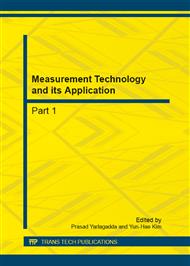p.1493
p.1497
p.1501
p.1507
p.1511
p.1516
p.1522
p.1528
p.1532
The Study on Convergence and Convergence Rate of Genetic Algorithm Based on an Absorbing Markov Chain
Abstract:
The study on convergence of GA is always one of the most important theoretical issues. This paper analyses the sufficient condition which guarantees the convergence of GA. Via analyzing the convergence rate of GA, the average computational complexity can be implied and the optimization efficiency of GA can be judged. This paper proposes the approach to calculating the first expected hitting time and analyzes the bounds of the first hitting time of concrete GA using the proposed approach.
Info:
Periodical:
Pages:
1511-1515
Citation:
Online since:
December 2012
Authors:
Keywords:
Price:
Сopyright:
© 2013 Trans Tech Publications Ltd. All Rights Reserved
Share:
Citation:


